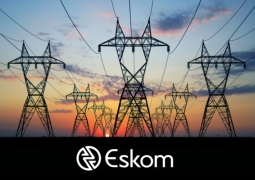
The Standing Committee on Appropriations this week met with the Financial and Fiscal Commission (FFC), as well as the Parliamentary Budget Office (PBO) for inputs on the Special Appropriations Bill which seeks to bail out state power utility Eskom.
The Special Appropriations Bill was tabled by the Minister of Finance in June, to request Parliament to approve additional funding for Eskom, and the Bill was referred to the Standing Committee for processing.
Committee Chairperson, Mr Sfiso Buthelezi, said the briefings by both the FFC and PBO will assist the committee with a “deeper analysis of the problems at Eskom, so that we can understand exactly the type of problems that we are solving”.
“Having understood the problems, we now need to get responses from Eskom and the Minister or Public Enterprises. We need to define what do have to do to properly play a oversight function on this matter and get a proper understanding of what is it that we are funding,” Mr Buthelezi said.
Prof Daniel Plaatjies, the Chairperson of the FFC, told the committee that the Special Appropriations Bill will result in a widening budget deficit and widening of government to ratio GDP, which he said will further put South Africa’s investment status at risk of downgrade.
“The Eskom bailout has the potential to crowd out other infrastructure investments. It is unproductive government spending, the bailout monies will come from somewhere and obviously there will be reprioritisation or cuts on other expenditure items, which will likely result in service delivery negatively affected,” said Prof Plaatjies.
He added that while the commission was in agreement with the general thrust of the Special Appropriations Bill, it is important that Parliament, the National Treasury and the Minister of Public Enterprise ensure that the Eskom bailout is accompanied by a sound plan with clear delivery milestones, and quarterly reporting on progress.
The FFC Chairperson could not say whether the planned unbundling of Eskom will lead to reprioritisation or effectiveness, “until we know the content and details of the unbundling”.
Dr Dumisani Jantjies of the PBO told the committee that Eskom’s financial position made it difficult to raise funds from the market, and the entity sees government support, cash injection in particular, as part of a turnaround strategy and as income.
The committee also raised concerns about the business model of Eskom, with the Chairperson confessing he was struggling to understand it.
“I must confess that I have tried to understand the business model of Eskom but got lost, I can’t understand it. One worry on top of many is the fact that Eskom cannot cover its interest rate payment and this is a big problem. That means we will be appropriating to deal with interest and not to cover the things that we want covered,” he said.
He also questioned the impact of the Independent Power Producers (IPPs) on the balance sheet of the power utility. “When the IPPs were sold to us, that was one of the reasons the economy was not growing because government was not signing – we are sort of subsiding the IPPs.”
Committee member, Ms Dipuo Peters, wanted to know what is the cost of IPPs to Eskom? “Right now we are told that Eskom buys electricity at a higher price than it sells, which does not make business sense. Eskom must present the model it uses, which I think is not sustainable.”
By Sakhile Mokoena
4 September 2019

